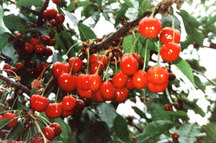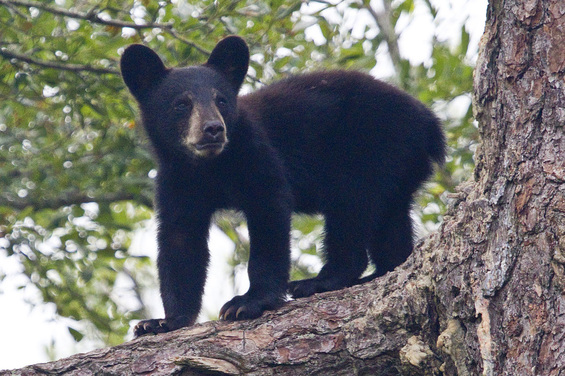 One of the concepts we cover in our courses is the idea that some species are "ecosystem engineers"--which means they have an outsize impact on the ecosystems where they live, relative to how numerous they are or their total biomass. Here in South Florida, we often use the example of "gator holes" to illustrate how wildlife can shape the landscape. Alligators dig wallows that stay wet even when the summer rains are over, and end up helping make water available to other species during the dry season. A recent study suggests that ecosystem engineers may also be important in helping plants adapt to climate change. Most models predict a simple relationship between the current distribution of plants and projected future environmental conditions, ignoring the processes by which plants shift their ranges--but since an estimated 1/3 of all plants are dispersed by wildlife, this is a big oversight. In a recent article in Current Biology, researchers found that Asiatic black bears make wild cherry trees more resilient to climate change through their foraging strategies. In spring, bears move up mountainsides as warming temperatures lead to peak production by alpine plants. They eat cherries at lower altitudes, and then move up the mountain as plants there begin to produce, defecating the cherry pits at higher altitudes than the parent tree. These cooler, higher altitude sites will be more favorable to wild cherries in the future than the locations where they are currently growing, making it relatively easy for cherry trees to move into suitable habitat as the planet warms. This is good news for plants that produce fruit in spring, but bad for fall producers, since bears feeding on fall fruits and nuts will be moving down the mountainsides to warmer, lower altitude areas for winter. A detailed understanding of plant dispersal patterns can help us understand now which plant species will survive or thrive under future climate changes.
2 Comments
4/11/2021 08:35:16 pm
Pretty interesting! Some plants need help from animals to outrun climate change.
Reply
6/16/2024 04:24:51 pm
Arborists play a critical role in maintaining the health, safety, and aesthetics of trees in urban and rural environments.
Reply
Leave a Reply. |
Field Notes
Archives
July 2021
Categories |
|
Partner with us! We are always looking for new schools, scientists, and non-profit organizations to partner with. Please contact us here to start a conversation.
Hear from us! Sign up for our newsletter to hear about what is happening at Field School as well as upcoming offers and specials. |


 RSS Feed
RSS Feed